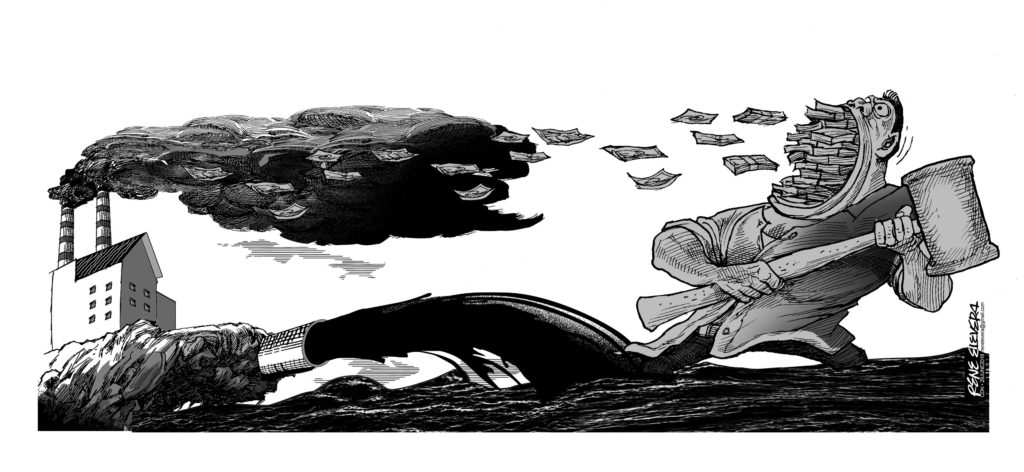
We hope that the Lapu-Lapu City government does succeed in clearing out all structures found encroaching within the three-meter or 20 meter easement zone in its coastal areas as it sets its targets next on business establishments.
Per its latest report, Lapu-Lapu City Hall’s demolition team dismantled nearly 1,000 structures that include rented rooms and pigpens that were found to be operating near the shoreline.
Of particular interest are the pigpens who were allowed all this time to operate despite the very obvious risk of their wastes polluting the coastal waters. One such owner could do nothing when the day of reckoning came though she insisted in a TV interview that she didn’t pollute the coastal waters.
What would be a true test of commitment would be if the city government did clear ALL structures found discharging their wastes into the shoreline and its waters particularly the businesses that have been operating profitably while being unaccountable for improperly disposing of their wastes.
It is surprising that some restaurants that were considered tourist draws were given consideration even if their mere
presence is no guarantee that the areas they operate in would be pollution free.
That Lapu-Lapu City officials like Mayor Paz Radaza signified their commitment to clean up their act in a stakeholders’ forum but stopped short of going all out doesn’t bode well for its efforts to ensure protection of the coastline.
The mayor may have heard this line but this bears repeating to every investor: water bodies and the shorelines are beyond the commerce of humanity. That exclusion should include forest lands and watersheds that are needed to ensure water supply.
Yet that is not being emphasized enough amid government efforts to ramp-up its tourism campaign to earn revenue and profit tends to overshadow any concerns for long-term environmental damage.
One doesn’t have to look far than Shell Island where there are plans to put up a piggery there in order to cash in on the booming demand for lechon or roast pigs despite the insistence by the Department of Environment and Natural Resources (DENR) that it is unclassified forest land.
Lapu-Lapu City should have gone all the way but it chose instead to do what it considered to be enough to avoid being ordered for closure by the national government while allowing certain liberties with long-time operators in order not to lose the taxable revenue they can get from these outlets.